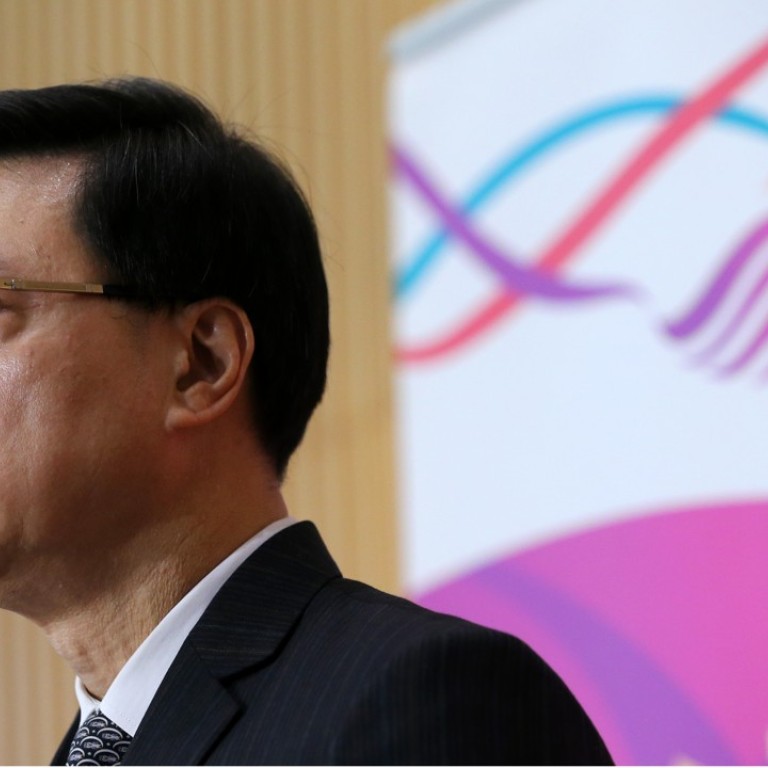
Ban of Hong Kong separatist party was on ‘compelling’ grounds and proportionate to risks: security minister John Lee
The Post has obtained Lee’s 20-page letter to the legal teams of Hong Kong National Party convenor Andy Chan Ho-tin and spokesman Jason Chow Ho-fai. In it the minister attempts to justify his unprecedented decision to outlaw a political party
The government officially banned the pro-independence Hong Kong National Party on Monday, making it the first political party to be declared unlawful under the Societies Ordinance.
Secretary for Security John Lee Ka-chiu said there was “a compelling case to take preventive action”, describing the ban as “necessary and proportional” in the interests of national security, public safety and order, and the protection of the rights and freedoms of others.
The Post obtained Lee’s 20-page letter to the legal teams of party convenor Andy Chan Ho-tin and spokesman Jason Chow Ho-fai, in which Lee rebutted their defence and explained the reasoning behind his decision. Here is a summary of the arguments from the officer recommending the ban, the assistant societies officer (ASO), the response from the party (HKNP), and Lee’s position.
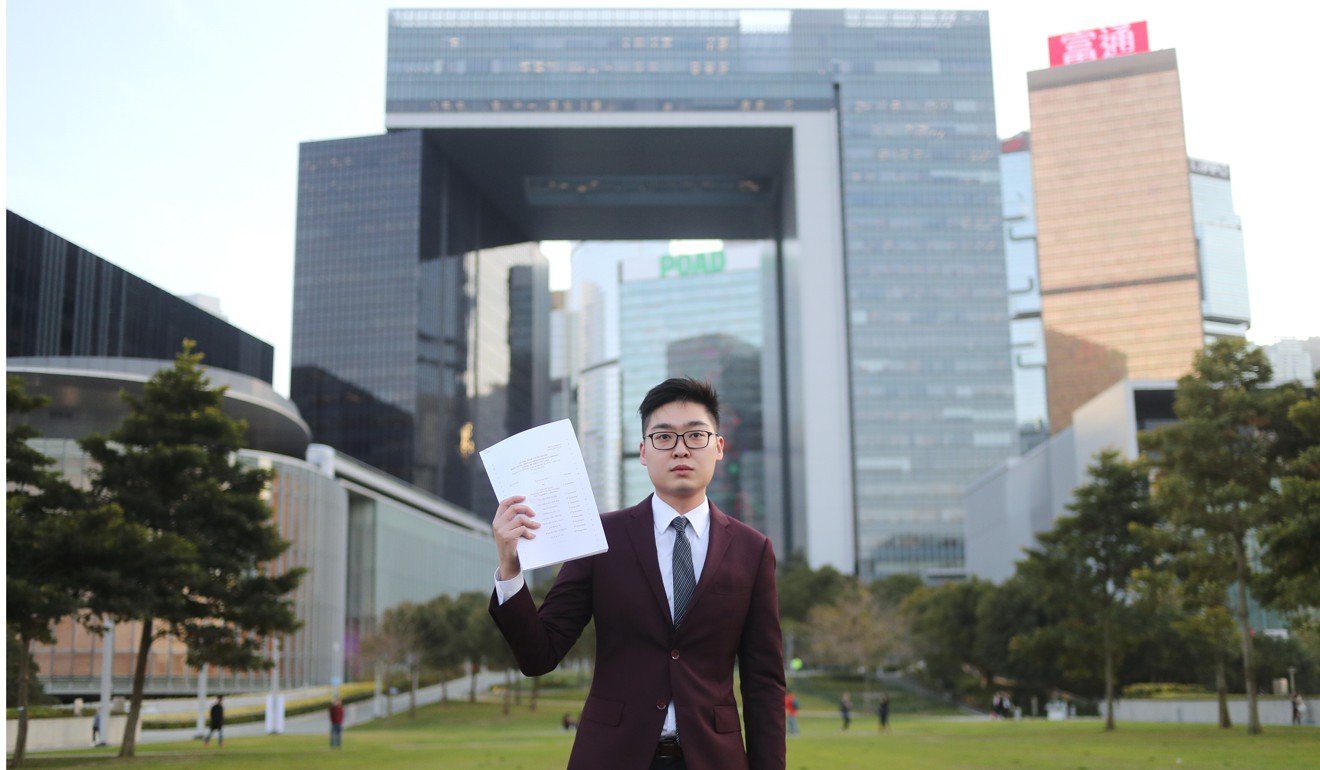
In the interest of national security
ASO: The HKNP was set up with the clear goal of an independent Hong Kong, in “blatant violation” of the Basic Law, whose Article 1 states that Hong Kong is an inalienable part of China.
The party has also taken actual actions to implement its objectives, which include Chan’s bid to run in the Legislative Council polls, propaganda through the press, “school infiltration”, street booths, fundraising and seeking overseas collaboration with independence bodies.
Hong Kong National Party’s call for ‘armed revolution’ a threat to safety, security minister says
It also announced a four-year working plan, made use of a luncheon hosted by the Foreign Correspondents’ Club on August 14 to escalate its advocacy to the international level, and called for the US president to kick China and Hong Kong out of the World Trade Organisation.
HKNP: The actions were nothing but political expression, or conduct incidental to such expression. Such peaceful and non-violent advocacy for change of the constitutional order is firmly within the boundaries of freedom of speech, freedom of expression, freedom of association and other fundamental rights.
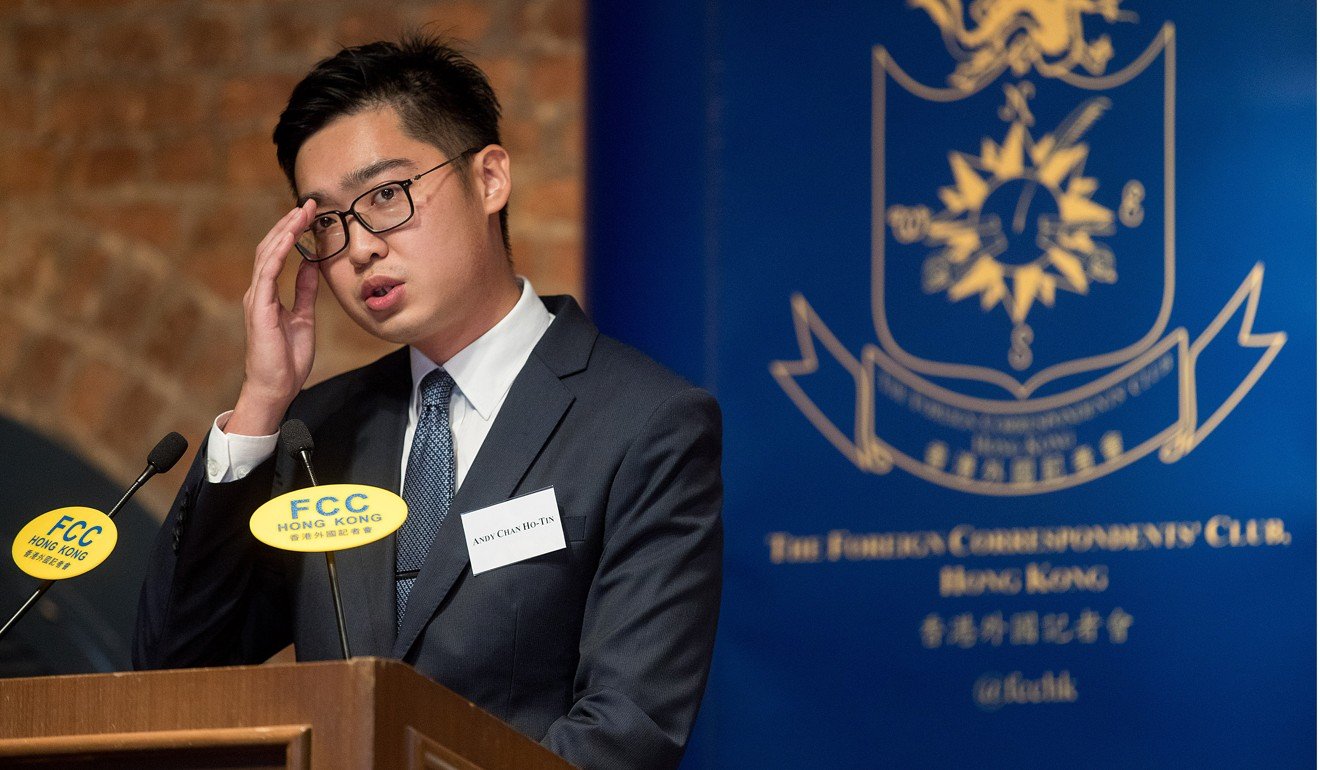
Lee: The evidence clearly shows the HKNP has displayed persistent efforts in pursuing the aim of Hong Kong independence. It has also been active in spreading ideas to students and linking up with anti-China and pro-independence forces overseas, such as those advocating independence of Tibet, Xinjiang, southern Mongolia and Taiwan.
“The aim of the HKNP’s international strategy is to weaken China so that Hong Kong will stand a better chance of becoming independent,” he wrote, highlighting Chan’s remarks at the FCC lunch and the party’s open appeal to the US president.
All these actions have gone beyond what is “part of ordinary political activity”.
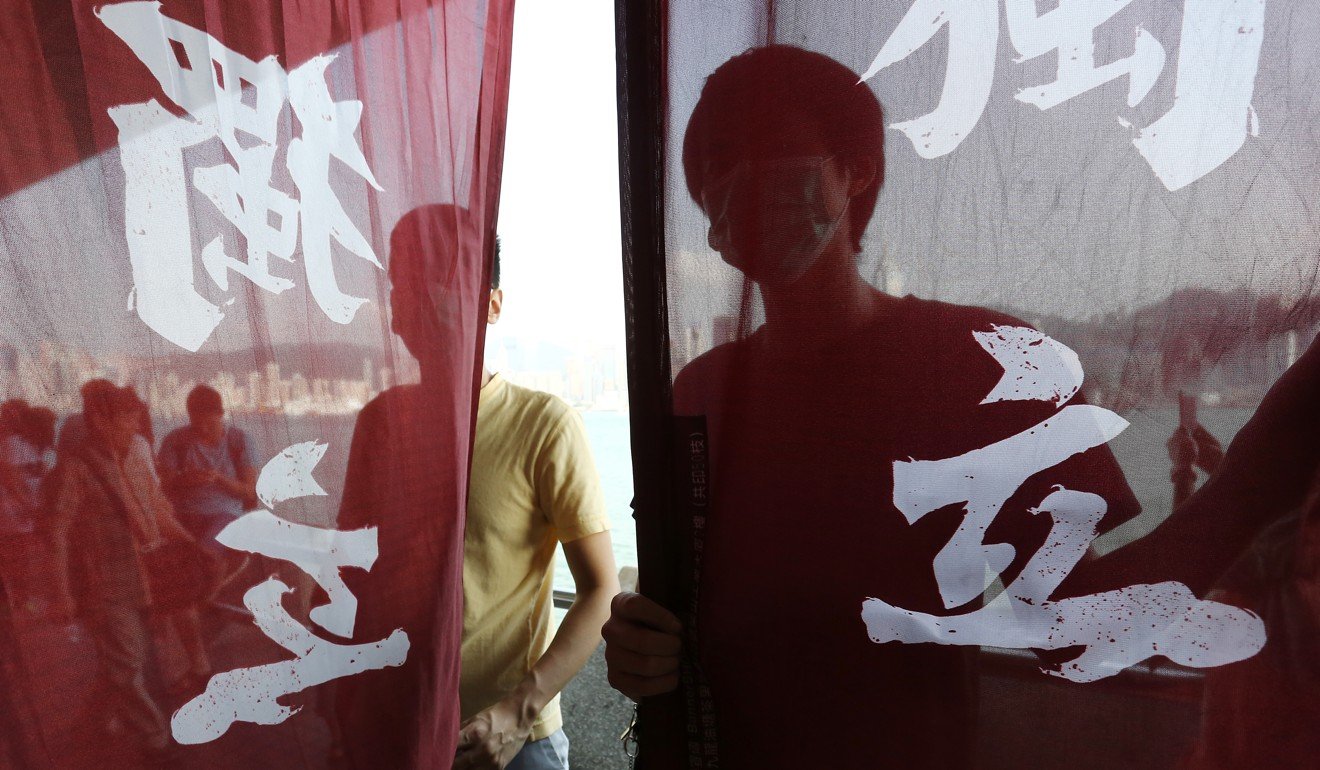
In the interest of public safety and public order
ASO: The HKNP has indicated on multiple occasions that it would use “whatever effective means”, including the use of force and violence, to achieve its goal.
HKNP: Andy Chan declared through his lawyer in his Legislative Council election petition that the HKNP had given up the use of force and amended its objective to use “lawful and non-violent means” to achieve its goals. Chan, in response to a question at the FCC lunch on August 14, condemned violence and said the party had never advocated violence.
Basic Law must allay any uncertainty over Hong Kong National Party ban
Lee: The HKNP has talked about the use of force and violence on numerous occasions, and its renunciation of force took place only at a few critical moments without making consequent amendments to its website or Facebook page.
“It would be remiss of me to dismiss the repeated statements of the HKNP as ‘political rhetoric’ and the possible effect of such statements on its followers, who may be motivated to follow suit and cause violence and public disorder,” he wrote.
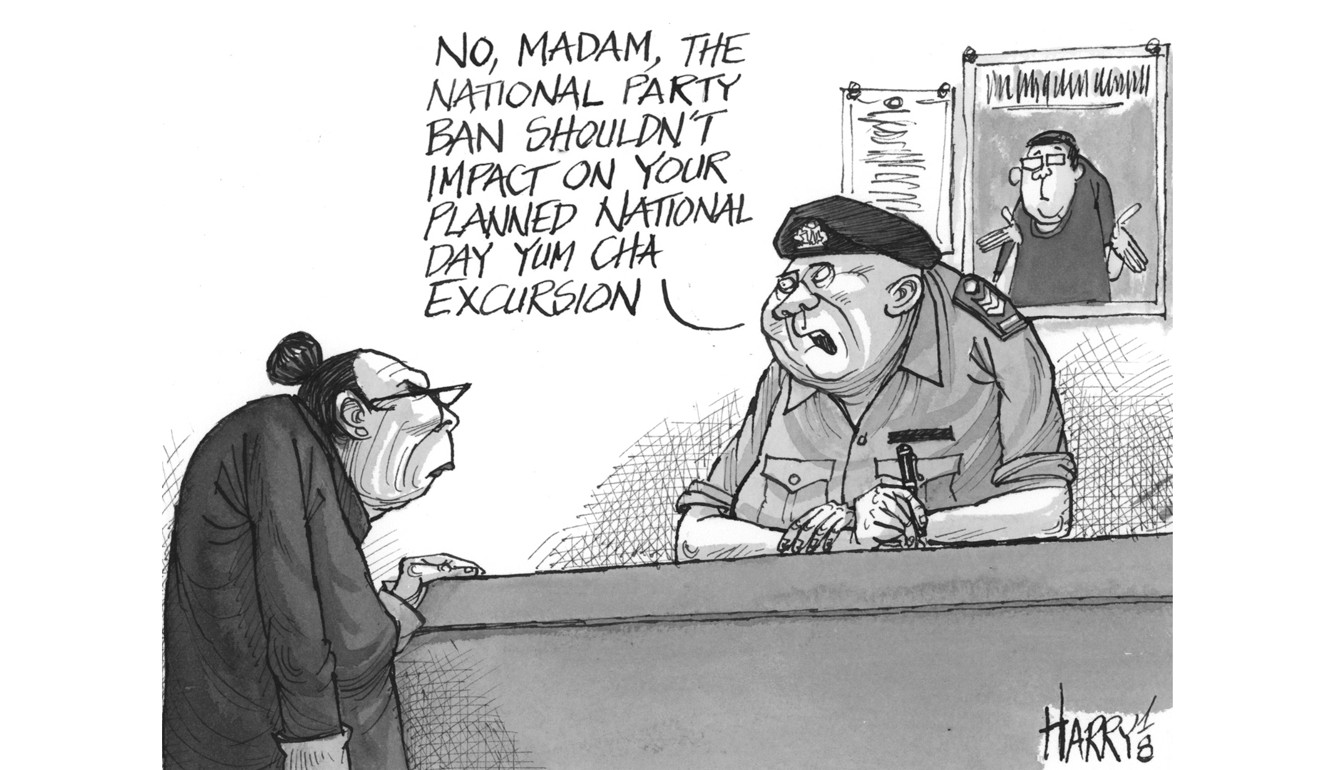
The ordinance does not provide that a ban of a society can be issued “only if it has used or threatened to use force or violence”. The HKNP has made open declarations that it would resort to all possible means, including disruptive actions and mobilising strikes.
“If widespread and coupled with a large sit-in blocking major thoroughfares, this would likewise cause widespread disruption to Hong Kong and endanger public safety and public order.”
Even if the events are not violent, there is a “high-risk” factor of supporters showing a tendency towards violence given all their previous advocacy.
Andy Chan rebuked after calling on US President to have city and China kicked out of WTO
In the interest of the protection of the rights and freedoms of others
ASO: The HKNP has incited hatred towards and discrimination against mainlanders in Hong Kong, describing them as “enemies who invade and colonise”.
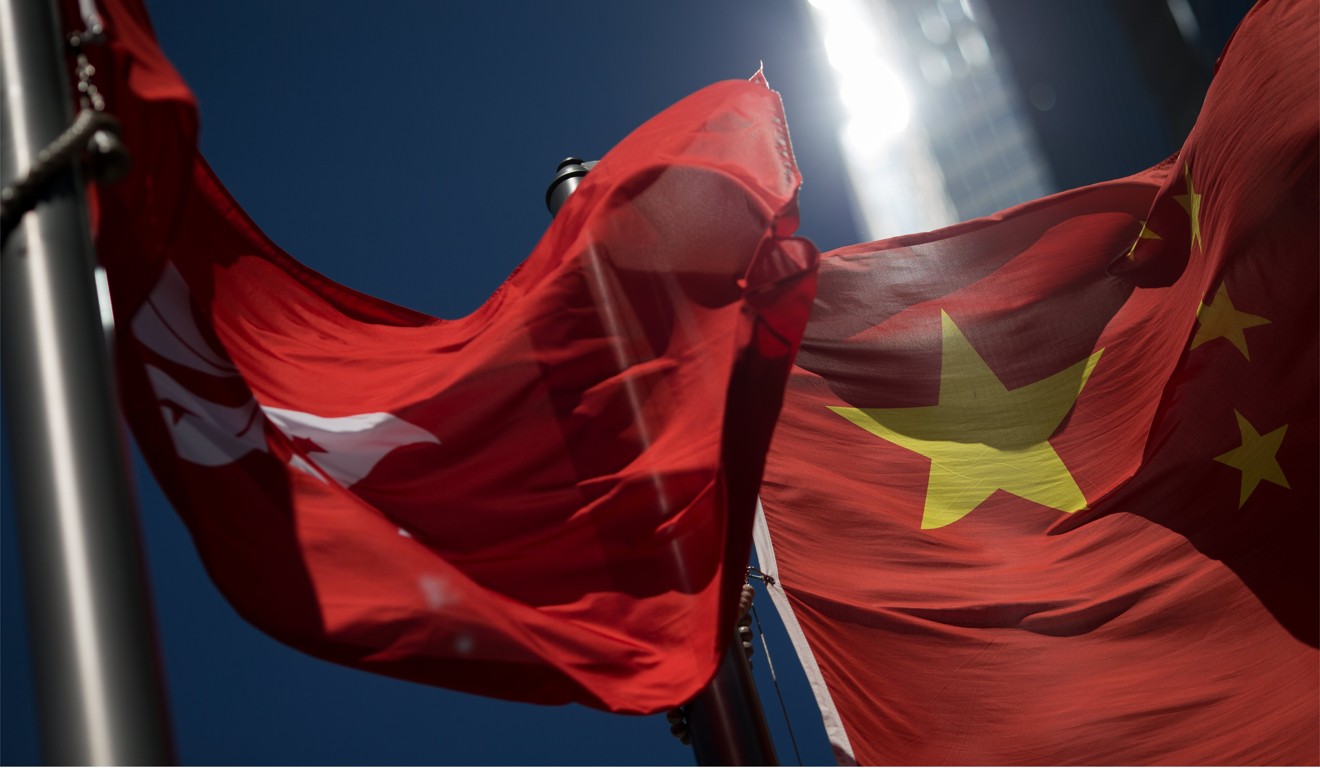
HKNP: It is within freedom of expression for Chan to express views on the impact that the large number of migrants from the mainland would have on the resources of Hong Kong, and express views about a “colonial-like relationship between Beijing and Hong Kong”.
Lee: “If the HKNP continues to operate, will this discrimination and hatred likely grow or reduce among the HKNP’s audience? My assessment, based on the totality of materials before me, is that it will not reduce.” Such social opposition, as it grows, may lead to risks and instability that may undermine public safety or public order.

